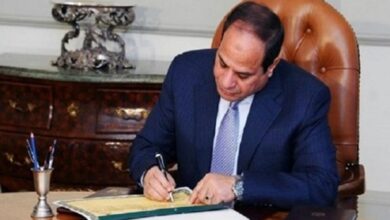The “yes” camp in the Egyptian referendum for constitutional reform got 77 percent. The “no” vote got the rest. And now, things are about to get rough.
It's news to no one that Egypt is a diverse society. So, it's not very surprising that divisions between Egyptians had a lot to do with the vote’s outcome. At the polling station in Ma’adi where I cast my ballot, most people were advocating for “no”. But it was also clear they were generally from elite social backgrounds. Looking at the results, it was obvious that the “no” vote was strongest in certain districts of Cairo and Alexandria – but even in those two cities, the “no” crowd could not reach even 40 percent. And nationwide, it was less than 23 percent.
Now, the referendum is over, but the divisions remain. As Egypt moves towards parliamentary elections and the first constitution of a post-Mubarak Egypt, there are several things both “yes” and “no” voters should consider. Under Mubarak, religion and politics were highly controlled and could only operate within closely defined parameters. Now that has changed, and Egyptians would be well advised to rethink how to move forward in their new political context.
1. The Muslim Brotherhood is, whether people like it or not, a legitimate and significant force in this country. There are two corollaries to that. The first is that the Brotherhood must be brought into the political mainstream, which is still being constructed. The second is that it must be capable of accepting and responding to public criticism – and it should seek to address the mistrust that many, particularly minorities in this country (and I include the secular, liberal elite of Egypt, who are indeed a minority, both in class as well as liberalism), have of the Brotherhood. So far, it has not managed to do so – the Christians still fear it (probably because the Brothers have made it clear they would not nominate a Christian for the presidency, without much explanation as to why), and many liberal secularists are worried that the Brotherhood will turn this country into a Sunni Iran. These fears may or may not be well-grounded, but what’s clear is that they need to be addressed.
2. The “no” crowd must now be honest with itself about why it lost. Many were tempted to blame the result on the Brotherhood and the Salafi preachers that persuaded their supporters that a “yes” vote was for Islam and a “no” vote was against Islam. There is undoubtedly some truth to this claim. But far more importantly, the “no” crowd lost due to its lack of engagement with the majority of the population. Many liberals are now supporting an open war against their Islamist opponents. Even before the vote, fear-mongering about the Brotherhood was rife, with some liberals going so far as to deny the group played any role in the revolution. This does nothing for the liberal cause in Egypt. Tahrir Square was special because it was a place where all of Egypt was represented – that was its strength and its beauty.
3. The “yes” and “no” camps have to recognize that they both have a role in the future Egypt. The Brotherhood was repressed for decades by the previous regime. Moreover, the group has a long history of grassroots activity in Egypt. Their constituents will not forget how involved they have been in charitable services, syndicates and so forth – areas in which “no” voters have not been engaged. On the other hand, the “no” camp includes some of Egypt’s best intellectual resources that provided the spark for Tahrir Square.
4. Both groups need to realize they have a common enemy: the remnants of the former ruling National Democratic Party, who are no doubt extremely happy to go about their business while their two most threatening foes fight against each other.
5. Finally, the two camps have a vested interest in building a new Egypt that is freer and more pluralistic. For the sake of national unity, they should try to agree on a common platform. When elections do finally happen, those in parliament will have to reach out to people outside, particularly when it comes to drafting the new constitution. National dialogue must not be left to elected politicians, it should include as many sectors of society as possible. The democratic process may bring to the fore people who are the most organised and have the most money – but are not necessarily the most representative. For that reason, Egypt needs as many channels for dialogue as possible in the coming period that can give voice to different groups within its diverse society.
H.A. Hellyer is Fellow of the University of Warwick and the Institute for Social Policy and Understanding. He currently resides in Cairo, and is writing a book on the Arab uprising. His website is www.hahellyer.com.




